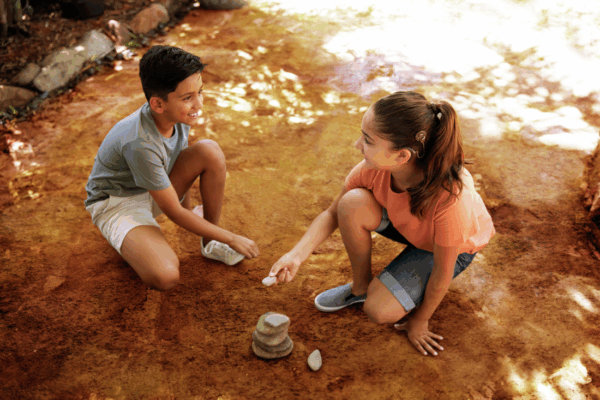Parents often tell us it can be difficult to describe or explain your child's cochlear implant and how it impacts your family. You may have found some well-meaning family and friends comment "but they will be able to hear with their cochlear implant" or "they will be fine."
This can be upsetting for families who are trying to understand the world of hearing loss themselves and who might be looking for empathy.
You may find you need to educate family and friends about your child’s cochlear implant.
Different family members (siblings, partners, grandparents, aunts and uncles, close friends) may respond differently to the news of your child’s hearing loss. At times, you might feel overwhelmed by others’ reactions. They might ask you questions you can’t answer.
It’s also common for your own family to feel differently—your partner may feel comfortable with the level of support available for your child, whereas you may feel overwhelmed that your child will face extra challenges. That’s okay.
As well as acknowledging different feelings, be patient with yourself, your child and your loved ones as everyone adjusts to your child’s life with a cochlear implant.
Families also report that in some cultures and family dynamics, “hearing loss” is not openly or comfortably discussed. This can be a challenge for families who want their wider family, friends and community to understand that they, too, play an important role in supporting a child with hearing loss. (We’ll help you understand more about their role and positive impact they can have in a later article.)
Some people may want to seek information from health professionals and published material. Others find it helpful speaking to others who have been through a similar experience.
Five tips for talking about your child’s cochlear implant
1. Encourage your child and your family to be open and honest with others about your child’s hearing loss. This also encourages your child to be open and understand they have a unique journey which may require asking for additional support.
2. Explain that your child needs to wear their cochlear implant to help them hear, but it’s important to understand that, even with the device, your child might still have difficulty hearing and might require support. The cochlear implant doesn’t remove the hearing loss.
3. Remember, you are the biggest advocate for your child. Assess all information and available choices and be confident in your decisions.
4. Invite another family member or friend to attend some appointments with you for support and to make sure all your questions are answered.
5. Don’t feel you have to answer every question from every person. You can come back to someone with a response when it’s right for you.
A parent’s advice
“One of the things that has helped Harper is for the other kids to understand that she needs these sound processors to hear—like other people need glasses to see—and for them to be able to tell her if they fall off and give them back to her” – Luke, father of Harper who has a cochlear implant
Visit our website for additional resources to support your child Read more.

